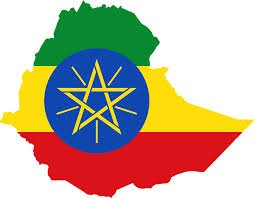
On 24th December 2020, Kumerra Gemechu, a cameraman working for Reuters, was arrested at his home in Addis Ababa. Police confiscated Gemechu’s phone, a computer, flash drives and papers and gave no reason for his arrest at the time. His arrest sparked concerns of a wider crackdown on independent media in Ethiopia since the outbreak of armed conflict in the Tigray region. On 30th December, Gemechu’s lawyer stated that he had been held in solitary confinement for almost a week, without charge. Gemechu was released on 5th January 2021 after being held for 12 days without charge. In response to rising concern for the safety of journalists in Ethiopia, three leading Democratic US senators wrote to Prime Minister Ahmed expressing concern over the erosion of freedom of the press. The letters also referred to the arrest of 13 journalists in 2020, seven of whom remain in prison, including Dawit Kabede. Despite these concerns being raised, the situation for journalists keeps deteriorating. On 21st January 2021, an Ethiopian journalist and his friend were shot dead by an unidentified person in the capital of the Tigray region, Mekelle, while driving in the city. The journalist, Dawit Kebede (not the same Dawit Kebede who remains in prison), worked for Tigray regional state TV. The friend with him was identified as Bereket Berhe, the brother of Kebede’s colleague. The motive of the attack is not yet known.
“Unanswered questions about the killing of journalist Dawit Kebede Araya will send a message of fear to the broader media community in Ethiopia, and will entrench impunity in attacks on the press,” said Committee to Protect Journalists’ Sub-Saharan Africa representative, Muthoki Mumo
Expression
General update
Since the last Monitor update, the situation in Ethiopia has deteriorated further, with the continuation of armed conflict in the northern Tigray region and reports of ethnic cleansing and mass murders in Tigray and other areas. Much of the region, including the several refugee camps on the Sudanese and Eritrean borders, is on the brink of a humanitarian crisis. The UN has struggled to get teams on the ground in the more remote areas of the region, and emergency aid is still unable to reach two refugee camps on the Eritrean border. On 1st January 2021, the Ethiopian Human Rights Commission (EHRC) published a report stating that crimes against humanity were committed by individuals and groups who participated in violence following the death of Hachalu Hundessa, as previously reported in the Monitor. The EHRC reported that 76 deaths were attributable to the actions of security forces. In late January 2021, a joint letter form NGOs, including CIVICUS, was submitted to the UN Human Rights Council calling for a Special Session on the deteriorating situation in Ethiopia. The letter drew attention to the widespread reports of serious violations of international human rights law and human rights violations and abuses.
Association
Internet blackouts affect distribution of information
Widespread communication blackouts have continued in Ethiopia as the armed conflict in the Tigray region remains ongoing. The shutdown of the internet, messaging services and other forms of communication has made it increasingly difficult for people in Ethiopia and the Ethiopian diaspora to obtain reliable information on what is happening. This has resulted in misinformation spreading widely during the conflict. On 30th November 2020, police arrested Dawit Kebede, managing editor of the online news outlet Awramba Times. Kebede was presented before a court on 2nd December 2020, where he was accused of disseminating inaccurate information, inciting violence and attempting to violate the constitution. Kebede remained in prison at the time of writing.
Journalists and independent media attacked
Authorities in #Ethiopia have detained a @nytimes journalist @MarksSimon & revoked his registered accreditation after his recent report about the ongoing war in #Tigray pic.twitter.com/cZ1XuXIN26
— Dawit Kebede (@dawitawramba) May 14, 2021
“My Dad (Jawar Mohammed) is on his 17th day of a hunger strike after being unlawfully detained in Eth. for 7 months & counting.” Oromo Jawar #FreeJawarMohammed #Starvingforjustice #OromoProtests @POTUS @KamalaHarris @amyschumer @SecBlinken @JosepBorrellF @EU_Commission @Reuters pic.twitter.com/FWRUF395iQ
— Arfasse Gemeda (@ArfasseGemeda) February 13, 2021
Opposition leaders arrested
Jawar Mohammed and several other opposition leaders are still in prison following their arrests in July 2020, as reported in the Monitor. In late December 2020, a group of Ethiopian lawyers called on Prime Minister Abiy Ahmed to release Mohammed and the other opposition leaders ahead of the upcoming general election, scheduled for 5th June 2021. On 22nd January 2021, a Federal High court decided to drop six of the ten charges brought against opposition politicians Jawar Mohammed, Bekele Gerba and 22 other individuals arrested in the wake of protests in June 2020. The dropped charges related to the possession of illegal firearms. The court adjourned the hearing until 27th January 2021.